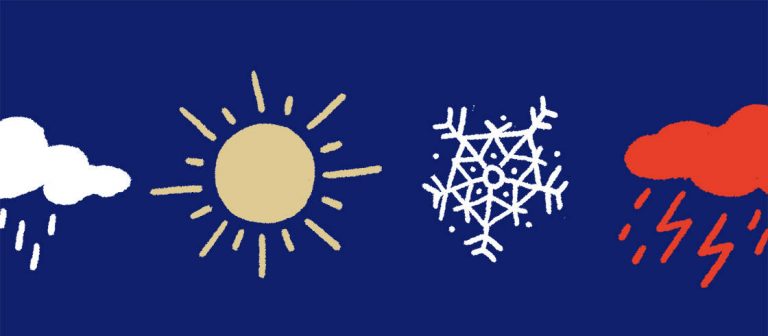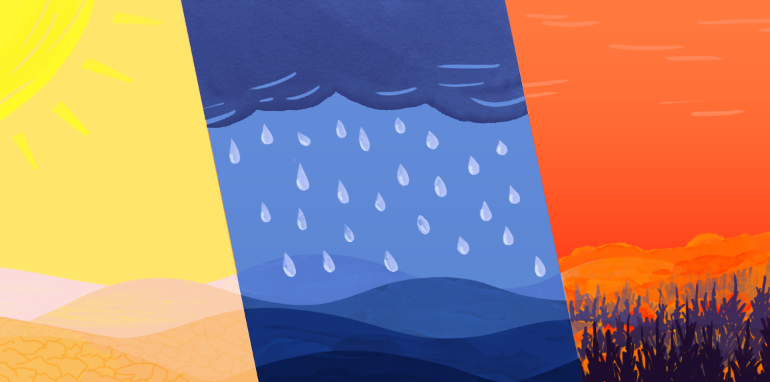As you have understood according to the season, the Sun illuminates and warms more or less strong certain regions of the Earth. In summer, in Europe it is hot on the continent while on the coast the temperature is more bearable because the water absorbs the heat and refreshes the temperature of the air.
The climate also depends on the movement of air masses and wind. Thus, in summer the sea water evaporates very strong at the equator. The steam rises in the air and forms big clouds that go back to Europe and the United States for example. At this latitude, they encounter colder air coming from the North Pole. The difference in temperature between the two air masses condenses the vapor that forms precipitation.

In Europe, it does not rain very hard and mainly in summer. In the equatorial region there are only two seasons: the dry season and the wet season. During the wet season sometimes called “rainy season”, in the Congo or in Indonesia for example during 6 months it rains a few hours every day. This is why these countries are very green and wooded (it’s the jungle) because the plants are numerous and grow quickly thanks to the high temperatures and the high humidity.
If we analyze the climate of the past, we find that it has not always been so. The Earth has had very cold periods when the glaciers of the North Pole reached England and France.
At that time, 21,000 years ago, the average temperature was 5°C lower than today. It was the time of the Neanderthal man and the Cro-Magnon man. Then, between -10000 and -6000 years, the temperature of the Earth warmed and it was on average 1°C more than today.
These glaciations follow a fairly regular cycle of about one thousand years, marked from time to time by mild temperatures and icy periods. These cycles depend on the degree of inclination of the Earth’s axis, the rotational movement of its axis (procession), the shape of the Earth’s orbit, and other less important parameters.
By analyzing past climate data and looking at what is happening today, climatologists are trying to assess the long-term consequences of the greenhouse effect caused by the accumulation of carbon dioxide in the air.

ok
this is a lie
wow
dsfgasf
yeah…
Shit web
thanks
thanks
thanks